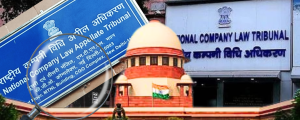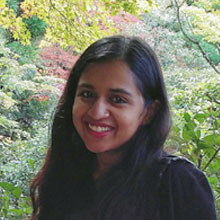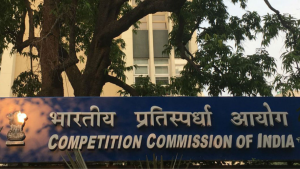

What Are the Courts Working On?
It is a well-known fact that there are an enormous number of cases that have been filed before the Indian courts. It is an equally well-known fact that many of these cases have been pending before the said courts for several years. Talks of pendency always seem to centre on these huge, and more often than not, unfathomable numbers. There is however, a third, and lesser discussed aspect to this pressing issue of pendency – the subject matter of these multiple and much delayed cases.
That is the very question we are asking in this blog post– what are the kinds of cases that the courts are working on? To answer this question, we’ve chosen to look at a single High Court from our database – the High Court of Karnataka.
Among the information we collect for each case record we have in our database, we have case types. The table below illustrates the distribution of case types for 2,34,795 case records that we have for the High Court of Karnataka. In addition, the table compares the duration of pendency across these various case types. So without further ado, let’s look at what the High Court of Karnataka is working on.
| CASE TYPE | CASE TYPE FULL FORM | PERCENTAGE OF TOTAL CASES | PENDENCY IN DAYS |
| WP | Writ Petition | 30% | 866 |
| MFA | Miscellaneous First Appeal | 29% | 1,168 |
| CRL.P | Criminal Petition | 11% | 775 |
| RSA | Regular Second Appeal | 7% | 1,514 |
| RFA | Regular First Appeal | 5% | 1,553 |
| CRL.A | Criminal Appeal | 3% | 1,270 |
| CRL.RP | Criminal Revision Petition | 2% | 1,025 |
| WA | Writ Appeal | 2% | 991 |
| COP | Company Petition | 1% | 2,179 |
| ITA | Income Tax Appeal | 1% | 1,408 |
| MSA | Miscellaneous Second Appeal | 1% | 1,015 |
| CRP | Civil Revision Petition | 1% | 935 |
| CA | Company Application | 1% | 926 |
| RP | Review Petition | 1% | 902 |
| CMP | Civil Miscellaneous Petition | 1% | 806 |
| CP | Civil Petition | 1% | 782 |
| CCC | Civil Contempt Petition | 1% | 633 |
| MFA.CROB | Miscellaneous First Appeal Cross Objection | 0.50% | 1,007 |
| RPFC | Review Petition Family Court | 0.50% | 745 |
| Others | 1% | 1043 |
There are multiple inferences that can be read from this table, but right off the bat, a couple jump out.
The first natural question of course, is, what kind of cases are most prevalent? At the top of the list, with a 30 per cent majority are Writ Petitions (WP). To quickly explain, writ petitions are cases filed by persons whose fundamental right have been violated by the state. So, in number speak, one third of the cases are those filed against the government or government agencies.
For an even larger, but not quite so obvious statistic, consider this: in the second column, just look for the word ‘appeal’ and then add up the percentages next to each of those case types. Together, seven case types – various kinds of appeals – account for 48 per cent of the total. An appeal is in essence a request to a higher court to review and revise the decision of a lower court. That means for about half these cases pending before the High Court, judicial time has already been spent, and this is the second time before a court.
The table also throws up possible correlations (or lack of) between the number of cases and average pendency. According to the data, Company Petitions (COP) have the longest average pendency of 2,179 days, about six years. However, they make up only 1 per cent of the sample. Whereas, Writ Petitions (WP), which make up one third of the total, are pending on average for the relatively shorter time period of 866 days or 2 years and 4 months.
The paragraphs above contain just a few of my thoughts as I created and looked at this table. They are but a tiny speck in the pool of questions that can be asked and the analyses that can be carried out using this data. Ultimately, what this table clearly illustrates is that understanding the composition of judicial workload is a much needed step towards building sustainable solutions to pendency.
Do you have any thoughts, ideas or questions about this data? If you do, let us know by leaving a comment below. We are eager to hear from you.
The views expressed in this article are solely those of the author’s and they do not represent the views of DAKSH.

Ramya Tirumalai
RECENT ARTICLES


Testing the Waters: Pre-Implementation Evaluation of the 2024 CCI Combination Regulations

Not Quite Rocket Science

Administration of justice needs an Aspirational Gatishakti

-
Rule of Law ProjectRule of Law Project
-
Access to Justice SurveyAccess to Justice Survey
-
BlogBlog
-
Contact UsContact Us
-
Statistics and ReportsStatistics and Reports
© 2021 DAKSH India. All rights reserved
Powered by Oy Media Solutions
Designed by GGWP Design